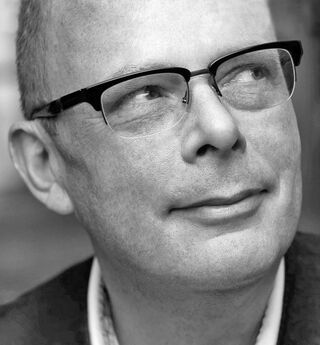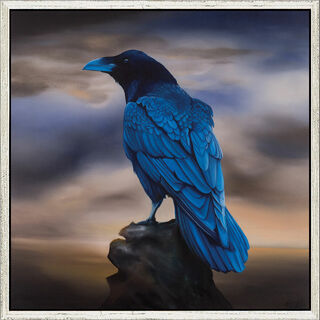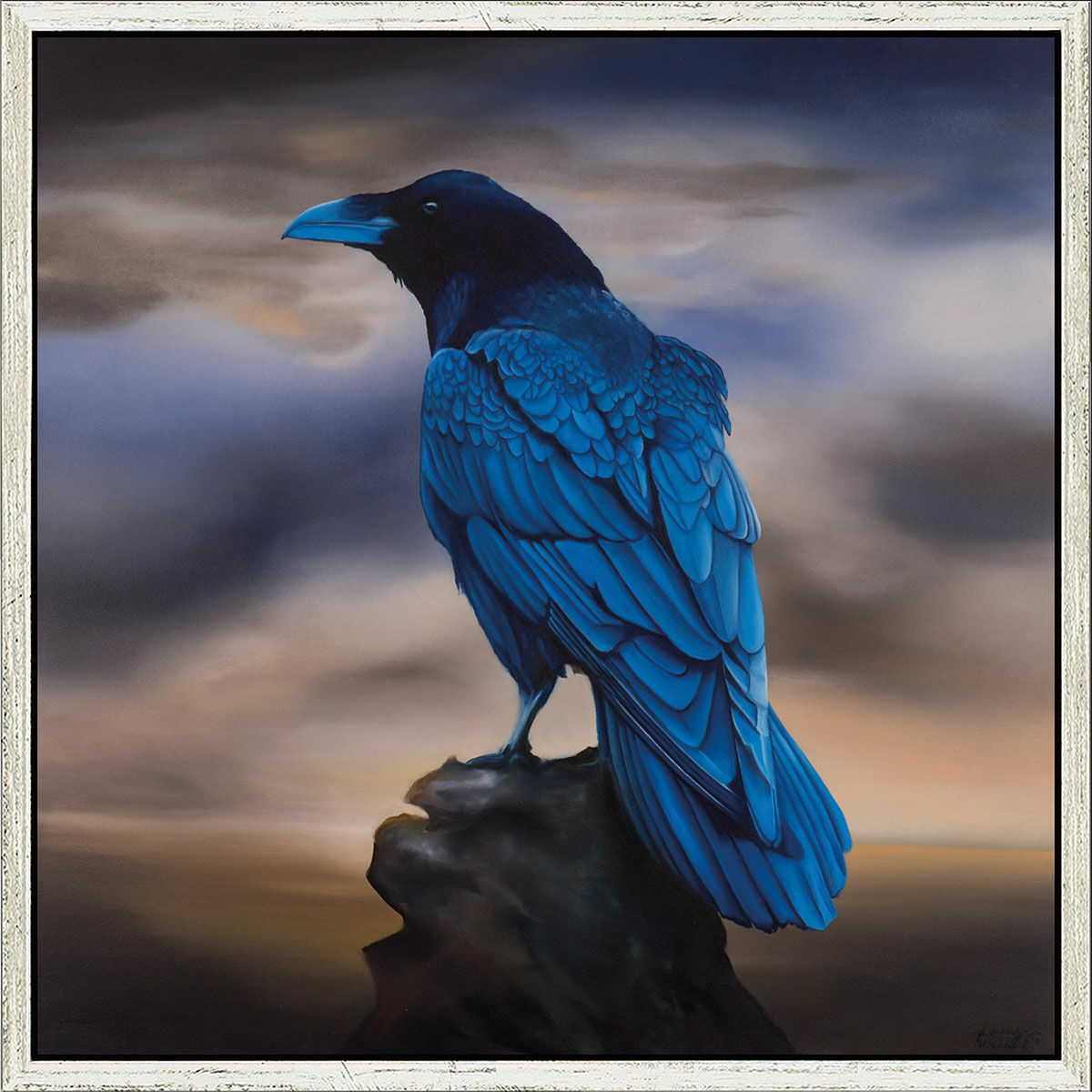Picture "The Raven", framed


Picture "The Raven", framed
Quick info
ars mundi Exclusive Edition | limited, 199 copies | numbered | signed | eproduction, Giclée print on canvas | on stretcher frame | framed | size 82 x 82 cm
Video
Detailed description
Picture "The Raven", framed
The "symbolic figure" that Weiche's is most interested in is the raven because, in mythology and literature, it represents a messenger of fate that can open the door to the fantastic and the otherworldly.
High-quality Fine Art Giclée museum reproduction in 7 colours on artist's cotton canvas. Stretched like an original painting on a wooden stretcher frame (adjustable with wedges for re-stretching). Limited to 199 copies. Signed and numbered by the artist on the back. Stretcher frame size 77 x 77 cm. A noble shadow gap frame in black with silver completes the high-quality appearance. Size 82 x 82 cm. ars mundi Exclusive Edition.
Frame configurator
Customised picture frame

Frame configurator
Customised picture frame






Customer reviews
Frame variant: framed
Verlässliche Kaufabwicklung und Lieferung. Optimale Verpackung. Rundum zufrieden.
Frame variant: framed
Ein wunderbares Bild, genau, wie ich es mir vorgestellt hatte! Super gut verpackt, kam ohne jegliche Beanstandung bei mir an. Vielen Dank dafür!MfG

About Andreas Weische
Andreas Weische (born in 1964) trained as a goldsmith between 1986 and 1990. In the same year, he moved to Munich and ran a jeweller's shop there. Another year later, he became a student of Prof. Ernst Fuchs, and in 1993 a student of Bele Bachem and Fabius von Gugel. Since then, Andreas Weische has worked as a freelance artist, painter, goldsmith, etcher, sculptor and porcelain painter with numerous exhibitions at home and abroad. The artist lives and works at Haus Ruhreck in Hagen, Germany. Here he founded the "Kunstschule Haus Ruhreck" in 2011.
"Andreas Weische is the prototype of the Fantastic Artist (...), with his works, he leads us through the labyrinths of our own soul, populated with enigmatic icons and fantasy creatures (...). His intention to astonish and amaze the viewer, as well as the fact that in all his works, he remains committed to the imagination, to the original pictorial invention, places him in the long and venerable tradition of so-called "fantastic art" (Roman Hocke)."
Graphic or sculpture edition that was initiated by ars mundi and is available only at ars mundi or at distribution partners licensed by ars mundi.


